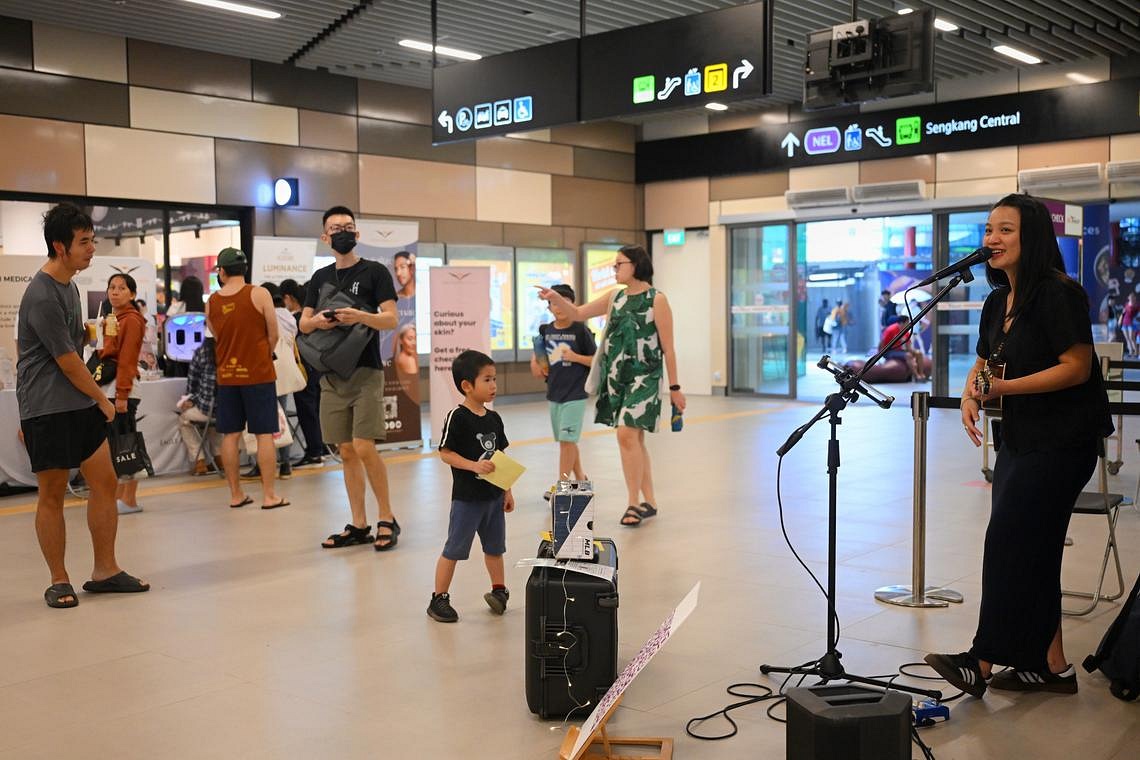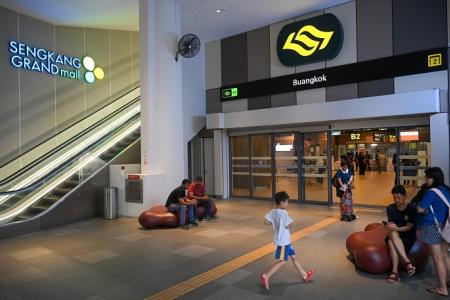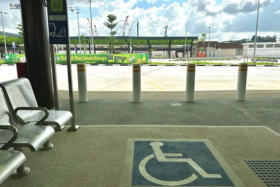New bus interchange for Buangkok residents
Buangkok residents now have more convenient transfers and improved connectivity to Sengkang town, as well as areas like Changi Airport, Bishan and Bukit Timah with the opening of a bus interchange.
Buangkok Bus Interchange, which is integrated with Sengkang Grand Mall and Buangkok MRT station, has been operating with three services since Dec 1, 2024. The interchange, which is operated by SBS Transit (SBST), will be able to progressively accommodate seven services.
Its official opening at 8.30am on Jan 11 was attended by Minister of State for Transport Murali Pillai.
The launch marks the 12th integrated transport hub built by the Land Transport Authority. Such hubs link bus interchanges to MRT stations and nearby developments like malls for commuter convenience.
In a Facebook post after the event, Mr Pillai said he was heartened to hear from residents about how the Buangkok interchange has significantly boosted connectivity and convenience.
The services operating from the interchange are 110, 114 and 156.
Service 110, which goes to Changi Airport, was relocated from the Compassvale Bus Interchange, and no longer serves two stops in Compassvale Road.
As at Dec 1, 2024, service 114, which used to operate from Buangkok MRT station, has been rolled out from the new interchange at 5.55am, with stops along Buangkok Crescent and Sengkang Central.
Service 156, which used to operate from Sengkang Bus Interchange, now serves two additional stops along Sengkang East Avenue. It is skipping seven stops in Sengkang East Road, Sengkang East Way and Compassvale Road, with its route traversing Ang Mo Kio, Bukit Timah and Ulu Pandan.
Residents whom The Straits Times spoke to are most excited about service 110, which can slash the travelling time to Changi Airport.

Mr Johnson Setoh, 48, who works in the healthcare sector, said he enjoys taking his family to the airport. He usually takes a train from his home near Sengkang MRT station, taking a little over an hour to reach the airport.
But by taking the train to Buangkok station, and transferring to service 110, the journey is faster. “I tried the bus once, and it didn’t take me too long. It took about 50 minutes to get to Terminal 3,” said Mr Setoh.
Dr Frederick Yeo, 35, a doctor who has a four-month-old daughter and a three-year-old son, said his family usually takes a taxi to get to the airport, which would cost up to $30. They live in Sengkang East Drive.
He will now consider tapping service 110 to save cost. “My son also enjoys taking bus rides, so we might take a bus to Changi Airport for his entertainment,” added Dr Yeo.
Mrs Ang Ziya, who works in a financial institution, said that in the past, service 114 terminated at a stop outside Sengkang Grand Mall.
“It was sometimes quite inconvenient if we wanted to go to the shopping mall, because we had to take the underpass via the MRT station. If I’m with my children and I have a stroller, I have to wait for the lift, which will take me five to 10 minutes (to get to the mall),” the 32-year-old added.
Speaking at the official launch, Mr Jeffrey Sim, group chief executive of SBST, said the Buangkok interchange focuses on inclusivity, catering to families with young children, the elderly and those with mobility challenges.
There is barrier-free access at the entrances while the boarding berths have priority queue zones with seats. Facilities include a wheelchair accessible toilet, a baby care room and a commuter care room which provides a quiet space.
SBST has signed a memorandum of understanding with private healthcare provider HMI Medical for an initial period of two years.
HMI Singapore’s CEO, Dr Walter Lim, said the three key areas of focus under the agreement would be to equip the public and SBST employees with first responder skills, raising awareness of preventative healthcare and spreading the word about common medical issues like bone and joint health.
“We want to provide options to Singaporeans to access quality wellness and healthcare in the community. Healthcare is not just restricted to clinics,” he added.
Get The New Paper on your phone with the free TNP app. Download from the Apple App Store or Google Play Store now


